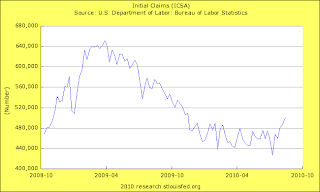 When there is too much focus on any activity, we are bound to feel something is missing. This is the reason Ed and I started reading philosophy, one page at a time. Why do we think the way we do?
When there is too much focus on any activity, we are bound to feel something is missing. This is the reason Ed and I started reading philosophy, one page at a time. Why do we think the way we do?
The first philosophers in early Greece hypothesized about the structure of matter, algebra, and geometry. They asked the first systematic questions about the world. As Greek city-states became dominant, Plato, Socrates, and Aristotle told us how to organize a country. They also told us how our mind works, reflecting the increased complexity of the world.
In the middle ages, the powerful (economic, intellectual, and religious) ascent of the Church of Rome was accompanied by one of the darkest periods for humanity. When one power group becomes the dominant player, people suffer. Philosophers were captive of the environment and dealt only with religious issues. Creativity was stymied.
In 1500, the Reformation finally unleashed man’s creativity, giving him his freedom and responsibilities. Descartes focused on how we think and who we are. Man and his mind became the center of study. It took 2000 years to reach this point.
In 1700, British philosophers and Hume told us we think based on sensations. They asked: “How do you know?” A devastating question difficult to answer. Not surprisingly, the existence of God was questioned.
Kant synthesized the main currents (empiricism and rationalism) on how we think and gave a complete view of the process. Hegel told us the state is the ultimate power, anticipating Karl Marx by more than 50 years.
The French Revolution (1789) tried to give new dignity to man. Man has the power to solve the problems of life. However, in 1800 the Industrial Revolution unleashed new wealth and social issues. Adam Smith tried to explain how the economic system works.
Marx disagreed. Give power to the workers to eliminate the sad state of labor in the midst of enormous wealth. Communism and GM’s fate come to mind.
Philosophers realized the need to express concepts logically. Kant, Bertrand Russell, Wittgenstein, and Chomsky contributed to logic and linguistics thus allowing the birth of computers and artificial intelligence.
What a journey!
George Dagnino, PhD
Editor, The Peter Dag Portfolio. Since 1977
Ranked Top Market Timer in 2009 and 2010 by Timer Digest
To find out more about my in depth views of the markets and my strategy just visit our website https://www.peterdag.com/ where you can subscribe to The Peter Dag Portfolio. You can also call me at 1-800-833-2782 to discuss your specific investment portfolio.
Disclaimer.The content on this site is provided as general information only and should not be taken as investment advice nor is it a recommendation to buy or sell any financial instrument. Actions you undertake as a consequence of any analysis, opinion or advertisement on this site are your sole responsibility.
 I hear many smart and well known pundits making the point the market is overvalued or undervalued.
I hear many smart and well known pundits making the point the market is overvalued or undervalued..png)


.png)

.png)
.png)

.png)
.png)
.png)

.png)
.png)


.png)




.png)
.png)
.png)


.png)






.png)




.png)
.png)
.png)